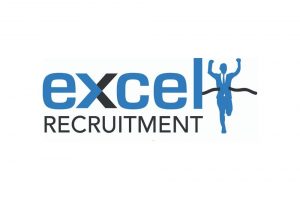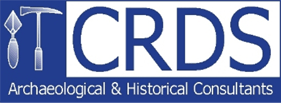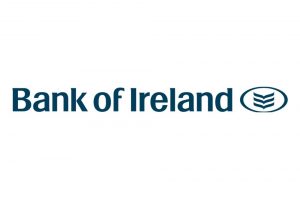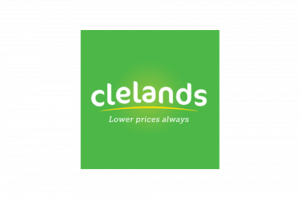
Know The Tax Opportunities That Exist For Your Business!
When most business owners hear tax or taxation their eyes usually gloss over and they will feign some minor level of interest in the discussion. Let’s be honest, you would much rather being talking about more interesting topics like revenue growth, sales, new marketing strategies, merger and acquisitions, how all of your customers are overjoyed with your service or the many ways in which your company is breaking new ground leaving competitors in your dust!
The perception is that tax is a non-innovating area and what possible benefits can there really be unless you are an Apple or other multinational organization with bases all around that world can be utilized? Well have a rethink because if that is your mind set then you may be leaving money on the table as there are a range of area to look at that can save your business money and put resources back into the businesses coffers!
It is always important for businesses to be able to identify where the tax opportunities exist for their business. By seeking the best possible outcomes for your business significant cash-flow savings can be achieved which can be vital in downturns or quiet periods. Real savings can be made which will impact the bottom line. Here are some of the commonly overlooked areas and strategies that you need to examine in your business.
Given the current operating environment and the impact on business, Revenue has announced a number of measures to assist SMEs experiencing cashflow difficulties arising from COVID-19. This article has been updated to reflect these measures.
Common Tax Strategies
-
Just announced. Tax debt agreements reached with Revenue by 30 September 2020 may be extended beyond 2 years to a maximum of 5.
Since March 2020, Revenue has suspended debt collection and the charging of interest on late payment for the January to June VAT periods and February to June PAYE (Employer) liabilities. In May 2020, Revenue announced the warehousing of these tax debts. 07 September 2020, as part of the Business and Community Stimulus package, Revenue announced a reduced interest rate of 3% per annum on non-COVID-19 related tax debt designed to provide vital liquidity support to struggling businesses and sole traders that have historic unpaid tax debt. The period of time for repayments has been extended from 2 to 5 years. Companies who enter into an agreement with Revenue no later than 30 September 2020 can avail of the reduced rate from the date of that agreement. If you fall under this category you need to apply immediately to Revenue.
- Bad Debt Relief – can you claim a refund of VAT already paid to Revenue? Many businesses have used this relief where debts can be difficult to collect.
- Cash Receipts – can you account for VAT when paid by your customers rather than when the invoice is raised?
- Large Asset Purchases/ Unprocessed Supplier Invoices – are you reclaiming VAT at the earliest possibility?
- Retained Deposits/Cancellation Fees – can you claim a refund of VAT where a deposit or advanced payment from a customer has been retained but no supply has taken place?
- Is 75% or more of your turnover generated from selling goods to customers established overseas? If so, you may be able to have your suppliers invoice you without charging VAT?
- VAT on “Qualifying Accommodation” in Ireland – can you reclaim VAT incurred on these costs which relate to attending conferences?
- VAT on “Business Cars” – can you reclaim VAT incurred on such purchases?
- Reclaiming Foreign VAT –EU VAT refund claims can now be made to Irish Revenue who in turn seek the refund from the other country.
- Timing of Invoices – is it possible for a business to delay issuing invoices to defer the time at which the VAT is due?
- Timing of VAT Returns – can you submit your VAT returns less frequently if you have small liabilities or more frequently if you are in a continuous refund position?
- Tax Recovery Strategies – should you be reclaiming more VAT? There are many ways to calculate the appropriate percentage recovery, not just turnover basis.
- VAT Rates – should you be accounting for VAT at a lower rate? Suppliers should review whether there are opportunities to reduce their VAT liabilities, particularly where they supply a wide range of goods and services
Update: September 2020. From 01 September 2020, the VAT rate decreased from 23% to 21% for a temporary period until 31 March 2021. Given the reduced rate you should consider all existing contracts and any opportunity to reduce payments made by direct debit.
– Existing Contracts
Are prices stated on a VAT-exclusive or inclusive basis? Revenue state “If contract to supply goods or services is entered into before the date of a change in a VAT rate, and the contract is not completed until after that date, then the agreed price is subject to an appropriate adjustment on account of the change in the VAT rate, unless there is an agreement to the contrary between the contracting parties” Further information is available on Revenue’s website
– Direct Debits
Your business may pay VAT to Revenue on a monthly direct debit basis? Can the payment be reduced to reflect the 6 month decrease? Do you pay any other creditor/supplier by direct debit? A similar reduction may apply for the duration of the change.
It is vital that businesses dedicate time to evaluating their VAT position as this can help to ensure that liabilities are less likely to accrue and may well open up the possibility of some actual tax savings.
Common Mistakes Businesses Make in Relation to PAYE
- Employees/Directors are often placed on the wrong PRSI rate. The cost of an error to the employer can be significant as the rate of employers PRSI is 11.05% (Budget 2020)
- There is a tendency for employees placed on secondment to remain on the Irish payroll system. This can lead to significant time/cost incurred in obtaining refunds for the employee post year end. When certain conditions are met a PAYE exclusion order can be obtained this allows the employee to be paid without deduction of PAYE.
- Employers often obtain exclusion orders for directors, however these can only be obtained in very limited circumstances. Penalties may arise for director and/or company where an incorrect application is made.
- Generally a foreign employer must register and account for Irish PAYE if an employee is carrying out their duties of employment in Ireland. Penalties arise for failure to register and operate PAYE.
- Employers often assist employees with some relocation expenses where an employee is moving abroad. These expenses are potentially liable to Irish payroll taxes with some specific exemptions
- If an employee forgoes remuneration in return for any benefit, then the legislation in relation to salary sacrifice applies and the remuneration sacrificed is usually taxable in full and so subject to payroll taxes.
- A common mistake in calculating motor expenses is that where a journey commences from the employee/director’s home, the journey is not restricted if the journey from home to temporary place of work is shorter than normal place of work to temporary place of work.
- A common error in the calculation of ex-gratia payments is the inclusion of contractual pay in lieu of notice in the ex-gratia payment.
- A typical error in the area of tax free cessation payments is the inclusion of total years’ service rather than the number of whole years’ service. With effect from 1 January 2011 cessation payments made are subject to a life time tax free payment limit. It is the employers’ responsibility to ensure that this threshold has not been breached previously by the employee.
Employed v Self Employed Taxation Issues
The question of whether an employee/employer relationship exists between two parties can sometimes be difficult to ascertain. Over the past number of years there has been an increase in Revenue audits targeting this area.
The Universal Social Charge (USC)
The introduction of complex legislation in this area has led to confusion as to what income is liable to this charge and what items are deductible.
Benefits in Kind (BIKs)
Common errors in this area relate to BIK on company cars, medical insurance premiums, employee/director’s loans and professional.
Share Based Remuneration
Recent Finance Acts introduced onerous legislation for employers who have share schemes in place. It has become increasing difficult to determine when the tax and USC is due, whether the shares are liable to PRSI.
Occupational Pension Schemes and PRSA’s
There is a general lack of awareness of the rules surrounding pension schemes and the amounts allowable for tax purposes.
Reporting Requirements
The taxes legislation impose a number of reporting requirements which are often overlooked such as the RSS1 form for share schemes, P11D for directors remuneration and employer PRSA contributions and reporting requirements relating to termination payments.
Third Party Benefits
Where a benefit provided to an employee by a third party (not that employee’s employer) gives rise to a charge to income tax, the provider of the benefit is responsible for accounting for the PAYE/PRSI.
There are also some common tax opportunities that can be utilized to the advancement of the business, business owners or employees.
Travel Scheme
A tax efficient method of increasing an individual’s remuneration is through the provision of a monthly or annual travel pass under the “Tax Saver Commuter Ticket Scheme” or the bike scheme. A taxable benefit in kind does not arise nor are they affected by the salary sacrifice provisions.
Update July 2020: Changes were announced to the popular Cycle to Work scheme as part of the July Stimulus package. An increased allowable expenditure under the scheme from €1,000 to €1,500 in respect of “ebikes,” and €1,250 in respect of other bicycles will be introduced. Previously the ceiling for all bike purchases was €1,000.
Company Pension Scheme
A taxable benefit in kind does not arise on employer contributions to a Revenue approved superannuation scheme.
Insurance Contributions
In the areas of health insurance it is possible for an employer to provide insurance to an individual without giving rise to a taxable benefit in kind if certain conditions are met.
Subsistence and Mileage
Where qualifying expenses are paid within published civil service rates, payments to employees can be made without the deduction of payroll taxes.
Relocation Expenses
Employers often assist employees with some relocation expenses where an employee is moving abroad, it is possible to pay certain expenses to employees without deduction of payroll taxes.
Special Assignment Relief
Tax relief may apply, under certain conditions, to employment income of non-Irish domiciled individuals who are employed by a foreign employer but who carry on the performance of their employment in Ireland.
In-House Medical Plans & Corporate General Practitioner Services
In some circumstances payroll taxes need not be applied to any benefit arising from the employer’s contribution to an in-house medical plan or payment to the general practitioner.
Medical Check Ups
Where an employer requires and pays for their employee to undergo a medical check-up it will not be considered to be a taxable benefit in kind.
Staff Discounts
If an employer gives their staff discount on the purchase of goods no taxable benefit will arise where the cost paid by the employee is greater than the cost of the employer acquiring the manufactured goods.
Mobile Phones/Laptops /Computers
When employers provide the above for business use and bear the costs of installation and use, a tax charge will not apply to the employee provided that private use is incidental.
Course or Exam Fees
Course or exam fees paid by an employer will not give rise to a taxable benefit in kind if the course undertaken by the employee is relevant to the employer.
Professional Subscriptions
Professional subscriptions paid by an employer on behalf of employees in specific circumstances will not give rise to a taxable benefit in kind.
Long Service Awards
A taxable benefit in kind will not arise in respect of an award made to mark long service where specific conditions are met.
New Employees – FÁS schemes
If as an employer you are taking on employees, it is worth considering the various funding provided by FÁS for employing certain individuals such as the Job Assist scheme and Employers PRSI Exemption Scheme.
Small Benefits
Where an employer provides an employee with a small non cash benefit (i.e. a benefit with a value not exceeding €250), PAYE and PRSI need not be applied to that benefit.
Payments to Directors
Payroll taxes must be operated on all payments to directors (including non-executive directors) of Irish companies. For non-executive directorships, Class S PRSI should apply. This means a liability to employer PRSI should not arise. Under Irish tax legislation a director is an office holder and an employer must operate payroll taxes on any remuneration or benefits received. This is also the case for individuals who invoice their fees through a corporate as the Revenue’s view is the individual is merely mandating their fees as a company cannot hold a directorship.
Pay P35 Returns the Cash Flow Effective Way
It is possible to make on annual P35 return and avoid monthly returns. This can be done by paying agreed monthly amounts by direct debit. This may be of particular interest to seasonal businesses as it can spread the annual PAYE liability over the year.
Income Tax Relief for the Self-Employed (Update – July 2020)
Government announced the introduction of a new once-off income tax relief measure to benefit self-employed who were profitable in 2019 and will make a loss in 2020 as a result of Covid-19.
Sole traders or members of partnerships will be able to carry back up to €25,000 worth of 2020 losses (and certain unused capital allowances such as wear and tear allowances for plant and machinery, writing-down allowances for industrial buildings and structures and allowances for farm buildings and structures). This will be off set against 2019 profits.
Claims and interim claims are made by amending the Form 11 tax return for 2019. To make an interim claim you must be fully tax compliant and certain time limits will apply. You can make your interim claim through MyEnquiries on the Revenue website.
Read More: Self-Employed in Ireland – Preparing and Filing your Tax Return
Case Studies: Effective Tax Opportunities In Practice
Case Study 1. VAT Case Study
Upon examination of a new clients activities we discovered a company with an unusually high amount of bad debts which was negatively impacting their business. The client was unaware that a VAT reclaim could be made in respect of most of these bad debts. We assisted the client to make a claim to Revenue and the client received a significant refund.
Case Study 2. Benefit In Kind
A company underwent a Revenue Audit and did not make a voluntary disclosure prior to commencement of the audit. During the course of the audit it was discovered that they were not operating benefit in kind in respect of three company cars. The Revenue imposed a 75% penalty on the basis that a higher duty of care arises on fiduciary taxes. By the time the case researched us the actions were irreversible in financial terms but we were able to negotiate non publication of the error and save negative PR for the new client.
Case Study 3. Benefit in Kind
A PAYE health check for a sized company. Upon investigation we discovered that they were failing to comply with the benefit in kind rules applying to company cars. The company made an unprompted voluntary disclosure of the issue to Revenue. The end result was a lower penalty being incurred than would otherwise have been payable. This saved the business many thousands of euros in fines and penalties.
Case Study 4. PAYE
By conducting a PAYE health check for a not-for-profit local organisation we discovered that they were not restricting mileage claims to: the shorter of their place of work to temporary place of work or their home to temporary place of work. We made an unprompted voluntary disclosure and avoided a large fine and negative press for the client.
Next Steps
Avid Partners Business & Financial Advisors can provide tax savings assistance in the following areas :
• VAT reviews for clients to determine potential VAT exposures and savings;
• Specialist VAT advice regarding property-related transactions (e.g. sales and purchases, leasing);
• Advice in relation to cross-border transactions;
• Assistance with Revenue audits and investigations and we can deal with the authorities fully on your behalf;
• VAT compliance services (VAT returns, Intrastat returns, VIES returns etc);
• Payroll tax reviews for clients to determine potential exposures and savings;
• Specialist payroll tax advice in relation to cross-border issues, ex-patriot and non resident employer issues; and
• Payroll tax compliance services (monthly payroll services, annual P35 returns);
• Systems reviews to identify weaknesses and risks in the way in which your returns are processed.
If you wish to discuss any of these issues contained in this report please call us on 0818 303087 to discuss potential tax opportunities for your business. Alternatively you can email us at info@avidpartners.ie We look forward to assisting you with your business.
-
 "A breath of fresh air. Your firm demonstrated enormous commercial understanding in turning around negotiations with a potential target vendor. I admire your style and ability to drive the deal forward. Many thanks."
"A breath of fresh air. Your firm demonstrated enormous commercial understanding in turning around negotiations with a potential target vendor. I admire your style and ability to drive the deal forward. Many thanks." -
 "I would like to say I'm very happy with your service, especially the audit team, your staff are always friendly, helpful and a pleasure to deal with."
"I would like to say I'm very happy with your service, especially the audit team, your staff are always friendly, helpful and a pleasure to deal with." -
 "Your business approach to clients is very impressive. I have always found that when explaining the types of service on offer, it is always concise and straight forward. The level of trust that clients place in your company and its staff speaks volumes."
"Your business approach to clients is very impressive. I have always found that when explaining the types of service on offer, it is always concise and straight forward. The level of trust that clients place in your company and its staff speaks volumes." -
 "I would like to take this opportunity to say how much we are impressed with your company's professionalism, it has been a pleasure working with you all and we look forward to working with you in the future."
"I would like to take this opportunity to say how much we are impressed with your company's professionalism, it has been a pleasure working with you all and we look forward to working with you in the future." -
 "Avid Partners - Accountants & Business Advisors are an excellent firm of accountants, their quality ethos is outstanding."
"Avid Partners - Accountants & Business Advisors are an excellent firm of accountants, their quality ethos is outstanding." -
 "I have dealt with Jamie O' Hanlon, of Avid Partners - Accountants & Business Advisors Chartered Certified Accountants, for a number of years as he is auditor to one of my clients. I have always found him to be professional and responsive in his approach."
"I have dealt with Jamie O' Hanlon, of Avid Partners - Accountants & Business Advisors Chartered Certified Accountants, for a number of years as he is auditor to one of my clients. I have always found him to be professional and responsive in his approach." -
 "Service is second to none; there is always someone at the end of the phone for any business advice. The staff are very easy to get along with, very approachable and know exactly what they are talking about"
"Service is second to none; there is always someone at the end of the phone for any business advice. The staff are very easy to get along with, very approachable and know exactly what they are talking about" -
 Having got to know the company through the BNI we decided it was time to change accountant. What impressed me about Avid Partners was their professionalism. Their attention to detail was second to none and as an added bonus they are a sounding board to all of my questions. Avid also potted some irregularities in my accounts from the previous few years and saved me substantial money on the years tax bill. Avid Partners deliver a first class service which is everything you could want from an accountant and I am happy to give this endorsement.
Having got to know the company through the BNI we decided it was time to change accountant. What impressed me about Avid Partners was their professionalism. Their attention to detail was second to none and as an added bonus they are a sounding board to all of my questions. Avid also potted some irregularities in my accounts from the previous few years and saved me substantial money on the years tax bill. Avid Partners deliver a first class service which is everything you could want from an accountant and I am happy to give this endorsement. -
 We at Fitzies Bar have worked with Avid Partners - Business & Financial Advisers for over five years. We find that the advice and support offered to us in addition to all of our book-keeping requirements to include payroll, VAT, etc. is invaluable and has helped to contribute to our continued growth especially in these challenging times. I would have no hesitation in recommending Avid Partners.
We at Fitzies Bar have worked with Avid Partners - Business & Financial Advisers for over five years. We find that the advice and support offered to us in addition to all of our book-keeping requirements to include payroll, VAT, etc. is invaluable and has helped to contribute to our continued growth especially in these challenging times. I would have no hesitation in recommending Avid Partners. -
 Jamie and his staff are a pleasure to work with. They respond promptly to any queries we have and are critical to our financial planning and the future needs of our business. I would highly recommend them to anyone interested in accounting services.
Jamie and his staff are a pleasure to work with. They respond promptly to any queries we have and are critical to our financial planning and the future needs of our business. I would highly recommend them to anyone interested in accounting services. -
 We at Stillorgan Cycles have used Jamie and his Team at Avid Partners – Accountants and Business Advisers for over five years. We have found that the retail advice and support offered to us is second to none and has helped to contribute to our continued growth especially in these challenging times. I would have no hesitation in recommending Avid Partners.
We at Stillorgan Cycles have used Jamie and his Team at Avid Partners – Accountants and Business Advisers for over five years. We have found that the retail advice and support offered to us is second to none and has helped to contribute to our continued growth especially in these challenging times. I would have no hesitation in recommending Avid Partners. -
 I met Avid Partners through a local business networking group. We had been using the same accountants for years and found that in these harsh economic times that we were not getting good enough value or service. We were very impressed by the company's professionalism and enthusiasm and genuine interest in helping us get the most out of our business. As a result we are now clients of Avid Partners and are thrilled with our decision.
I met Avid Partners through a local business networking group. We had been using the same accountants for years and found that in these harsh economic times that we were not getting good enough value or service. We were very impressed by the company's professionalism and enthusiasm and genuine interest in helping us get the most out of our business. As a result we are now clients of Avid Partners and are thrilled with our decision.
